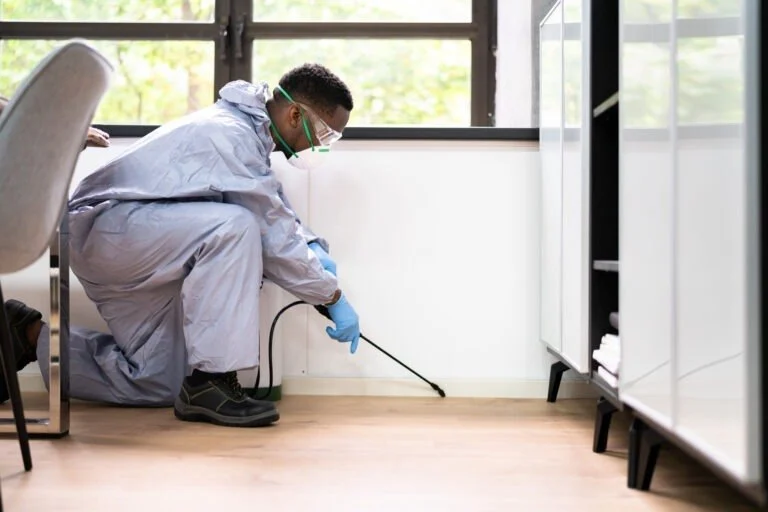
- 1- Why Do Pests Return After Treatment?
- 2- Common Reasons for Recurrent Pests
- 3- Why Pest Control Treatments Fail
- 4- How to Prevent Pests from Returning
- 5- Choosing the Right Pest Control Service
Why Do Pests Return After Treatment?
It’s frustrating to see pests return after treatment, but it’s a common issue that many homeowners face. After investing in pest control, you expect the problem to be solved permanently, yet pests seem to find their way back. Understanding why this happens can help you take the right steps to prevent it.
One of the primary reasons pests return is that treatments may not have addressed the root cause of the infestation. In some cases, the treatments may only have targeted visible pests without getting to the source of the problem. Pests often return because their breeding grounds or food sources weren’t fully eliminated, which can lead to a recurrence.
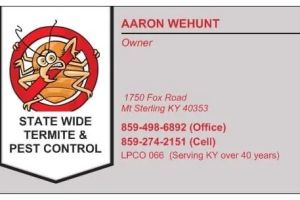
Statewide Termite and Pest Control
Mount SterlingMontgomery CountyKentucky
128 Westside Dr, Mt Sterling, KY 40353, USA
Common Reasons for Recurrent Pests
Several factors contribute to pests returning, and understanding these reasons can help you tackle the issue more effectively:

Mosquito Shield of Western Oakland County
Farmington HillsOakland CountyMichigan
31145 Bycroft St, Farmington Hills, MI 48331, USA
1. Incomplete Treatment
If pest control efforts don’t address the entire infestation or all the entry points, pests can easily return. For example, while an exterminator may treat the inside of your home, they might miss areas like attics, basements, or the exterior where pests can still enter. These untreated areas can act as a sanctuary for pests, allowing them to repopulate.
2. Residual Food Sources
Even after a pest treatment, the presence of leftover food or crumbs can attract pests. If food waste or debris isn’t properly cleaned or sealed away, it can entice pests to return. It's important to not just treat the pests but also eliminate the food sources they rely on to survive.
3. Environmental Conditions
Environmental factors, such as weather and seasonality, can play a role in pest recurrence. For example, during colder months, pests like rodents may seek shelter inside your home. If your home is not properly sealed or if there are gaps around windows and doors, they can easily find a way back inside.
4. Neighboring Infestations
In some cases, pests return because of nearby infestations. If your neighbors are dealing with a pest problem, there’s a chance that pests will move from their home to yours, especially if there’s easy access between the two properties. This is particularly common with pests like rodents, termites, and ants.
Why Pest Control Treatments Fail
Pest control treatments can fail for several reasons, leading to recurring infestations. Here are some common reasons pest control doesn’t always work as expected:
1. Over-the-Counter Solutions
Many homeowners resort to over-the-counter pest control solutions, such as sprays and traps, to deal with infestations. While these products can be effective for minor issues, they often don't provide long-term solutions. Over-the-counter products typically target visible pests but fail to address the underlying problems or prevent new pests from entering.
2. Incorrect Pest Identification
For a pest control treatment to be effective, it’s crucial to correctly identify the type of pest you're dealing with. Many pest control failures occur when pests are misidentified, leading to the wrong treatment being used. If you’re not sure what type of pests you’re dealing with, it’s best to consult a professional.
3. Lack of Follow-Up Treatments
Pest control often requires follow-up treatments to ensure that all pests are eradicated. Some pests, such as bedbugs or termites, may require multiple treatments over time to fully eliminate them. A one-time treatment might not be enough to address the entire problem, especially if the pests have already spread throughout your home.
How to Prevent Pests from Returning
Preventing pests from returning after treatment involves more than just applying a pesticide. Here are some steps you can take to ensure long-lasting protection:
1. Seal Entry Points
One of the most effective ways to prevent pests from returning is to seal off entry points. Check for cracks and gaps around doors, windows, pipes, and vents, and seal them with caulk or weather stripping. This will make it more difficult for pests to find their way into your home.
2. Regular Cleaning
Keeping your home clean is essential to preventing pests. Regularly vacuum your floors, wipe down surfaces, and clean up any food crumbs or spills. Make sure to store food in airtight containers, and dispose of trash regularly to eliminate potential food sources for pests.
3. Eliminate Standing Water
Standing water can attract pests like ants, mosquitoes, and cockroaches. Fix leaky pipes, and make sure to empty any containers that collect water around your home. A dry environment is less inviting to pests.
4. Use Pest-Repellent Products
There are several natural pest-repellent products available that can help keep pests away. Essential oils like peppermint, lavender, and eucalyptus are known to repel insects. You can create your own homemade sprays or use pest-repelling plants in your home or garden.
Choosing the Right Pest Control Service
If you're facing a recurring pest problem, it may be time to hire a professional pest control service. Here's how to choose the right one:
1. Look for Experience
Choose a pest control company with a proven track record and experience in dealing with the specific pests you’re targeting. An experienced company will know how to effectively treat your home and ensure the pests are completely eliminated.
2. Read Customer Reviews
Customer reviews can provide insight into the effectiveness and professionalism of a pest control service. Look for companies with positive reviews and recommendations from satisfied customers.
3. Ask About Integrated Pest Management (IPM)
IPM is a sustainable and eco-friendly approach to pest control that focuses on prevention and long-term solutions. Ask potential pest control companies if they use IPM practices to ensure that you're receiving the most effective and environmentally responsible service.
Where to Find Professional Pest Control Services
If you’re looking for expert pest control solutions, visit PestControlHub to find the best local pest control companies. Our platform connects you with trusted professionals who can help eliminate pests and prevent them from returning.
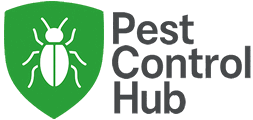
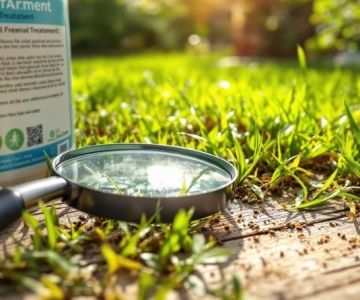

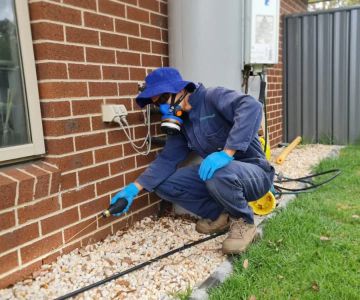
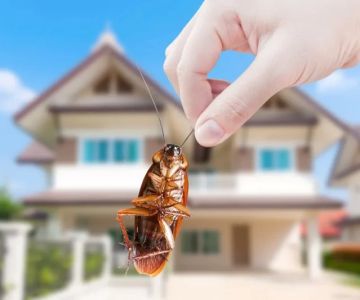

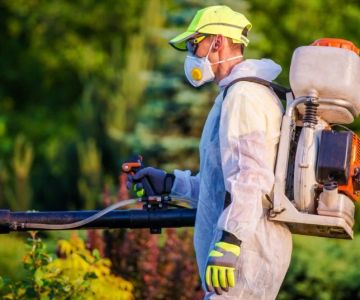
 Western Pest Services4.0 (106 reviews)
Western Pest Services4.0 (106 reviews) Mosquito Authority - Dover, DE4.0 (741 reviews)
Mosquito Authority - Dover, DE4.0 (741 reviews)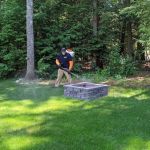 Mosquito Pros NH4.0 (297 reviews)
Mosquito Pros NH4.0 (297 reviews) Professional Bug Solutions5.0 (10 reviews)
Professional Bug Solutions5.0 (10 reviews)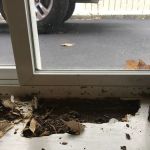 Prestige Pest Unit & House Wash5.0 (202 reviews)
Prestige Pest Unit & House Wash5.0 (202 reviews) AG Pest Services5.0 (92 reviews)
AG Pest Services5.0 (92 reviews)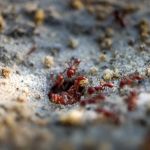 How to Control Fire Ants in Your Yard: Effective Solutions and Tips
How to Control Fire Ants in Your Yard: Effective Solutions and Tips How to Address Pest Issues in Spring Planting – Practical Solutions for Gardeners
How to Address Pest Issues in Spring Planting – Practical Solutions for Gardeners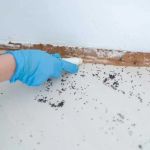 How to Seal Entry Points in Foundation Cracks
How to Seal Entry Points in Foundation Cracks How to Inspect for Pests After Heavy Rain
How to Inspect for Pests After Heavy Rain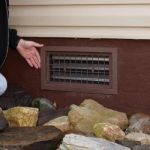 How to Control Pests in Crawl Space Vents
How to Control Pests in Crawl Space Vents How to Prevent Pest Infestations in Flower Beds: Expert Tips for Healthy Gardens
How to Prevent Pest Infestations in Flower Beds: Expert Tips for Healthy Gardens